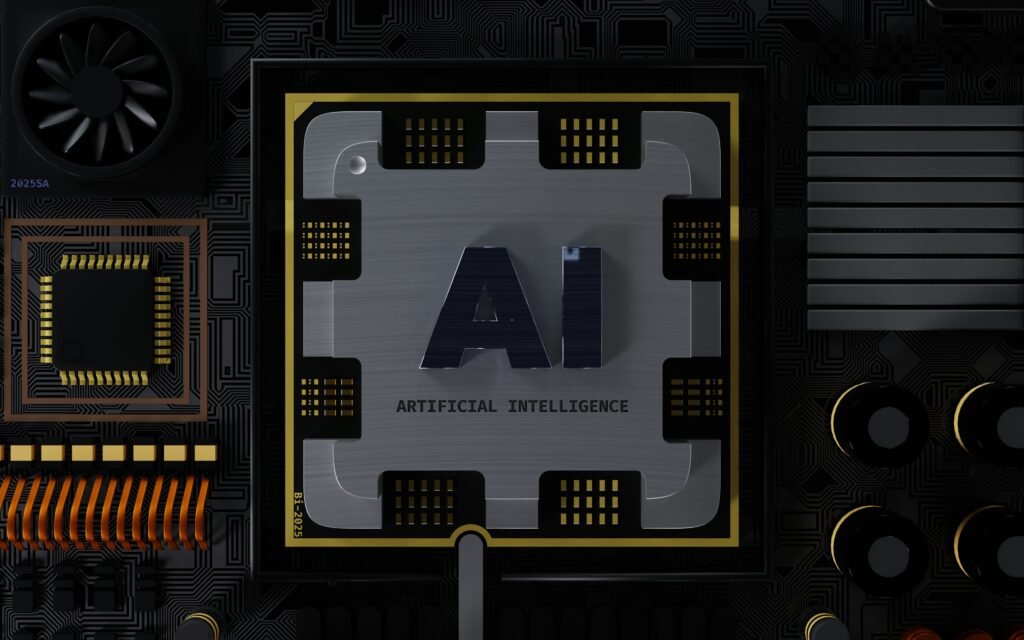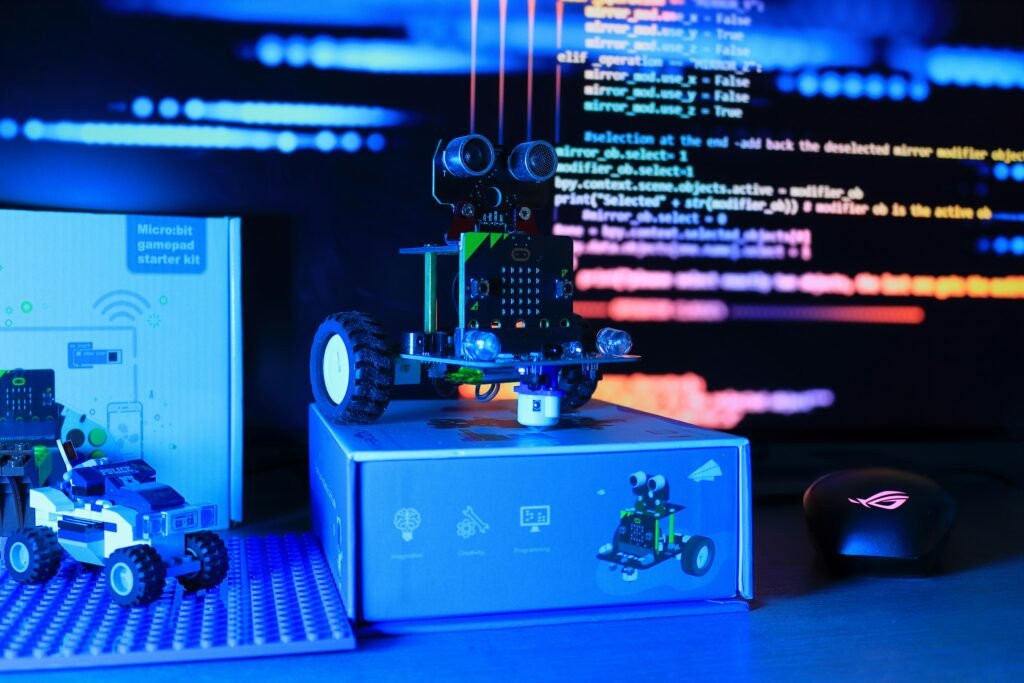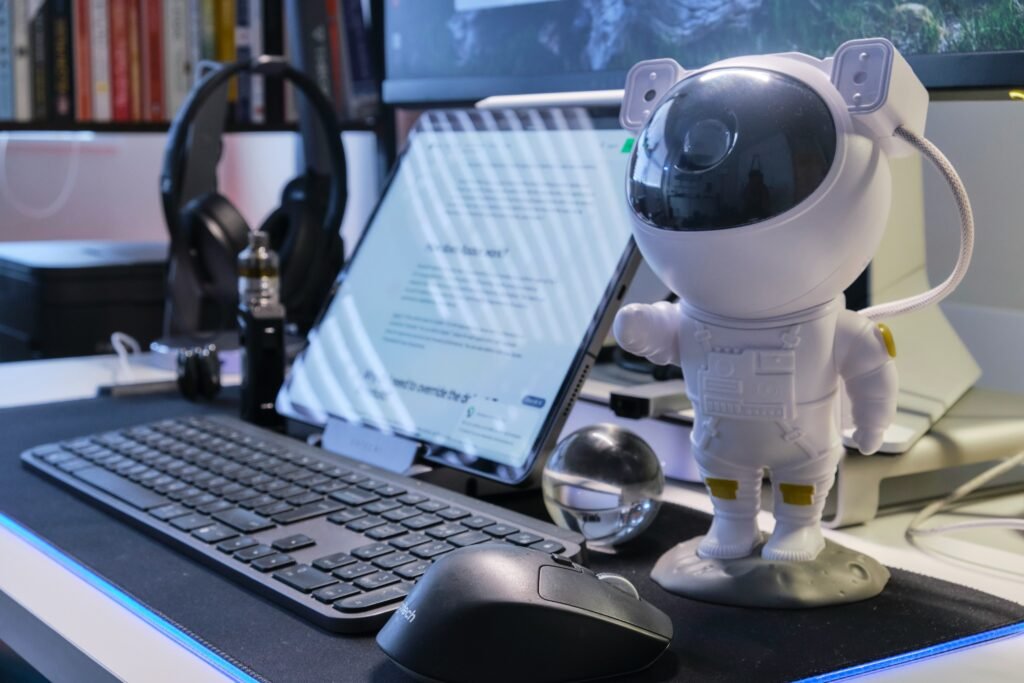
As the universe continues to inspire human curiosity, modern challenges in space demand smarter tools. Enter Artificial Intelligence (AI), a powerful force reshaping how we explore space. From self-navigating spacecraft to intelligent rovers, AI in space is no longer just science fiction. It’s a growing reality that is revolutionizing space tech, especially in the US and UK AI space sectors.
In this article, we’ll explore AI’s role in space exploration, real-world applications, and how it helps solve problems that human crews and traditional tech alone can’t manage.
Why Is Artificial Intelligence Important for Space?

Space is vast, dangerous, and unpredictable. Missions often face long communication delays, limited onboard crew, and unexpected technical issues. That’s where AI plays a vital role.
Artificial Intelligence (AI) systems offer:
- Autonomy: They make real-time decisions without waiting for Earth commands.
- Speed: AI processes vast amounts of data faster than any human can.
- Efficiency: It optimizes fuel use, navigation, and even spacecraft health monitoring.
- Safety: AI reduces risks for astronauts by handling routine or hazardous tasks.
These features make AI a central pillar of future space tech and mission design.
How AI Is Used in Space Exploration

1. Autonomous Navigation and Landing
One of the most practical uses of Artificial Intelligence (AI)in space is helping spacecraft navigate and land with precision.
For example:
- NASA’s Mars 2020 mission used AI to guide the Perseverance rover during descent.
- The Terrain-Relative Navigation system analyzed images in real time to avoid hazardous zones.
AI removes dependency on delayed Earth-based commands and allows landers and rovers to respond instantly to their environments.
2. Intelligent Rovers and Robots

AI-powered rovers can make decisions on where to go, what to sample, and how to get there.
- NASA’s Curiosity and Perseverance rovers use machine learning to identify rock types and prioritize scientific tasks.
- European Space Agency’s (ESA) robots learn how to adapt to terrain changes using onboard Artificial Intelligence (AI).
In the US and UK AI space initiatives, robotic autonomy is crucial, especially for missions on the Moon and Mars, where crew members are absent or far away.
3. Satellite Data Processing and Earth Observation
AI is essential for managing the massive volume of data that satellites collect.
- AI algorithms analyze climate patterns, detect wildfires, and track ocean changes.
- In space missions, AI monitors spacecraft performance and sends alerts if systems show signs of failure.
This reduces human error, speeds up response time, and improves mission success.
4. Astronaut Assistance and Health Monitoring
AI is also used to support astronauts on long missions.
- Virtual assistants like CIMON (used on the ISS) help astronauts by recognizing voice commands, retrieving information, and learning from interactions.
- AI monitors crew health, identifying symptoms early through sensors and predictive modeling.
This allows astronauts to work more efficiently and safely, especially during deep-space missions.
5. Mission Planning and Simulation
Before rockets launch, Artificial Intelligence (AI) helps engineers simulate complex space scenarios:
- AI models predict mission outcomes under different conditions.
- Machine learning assists in optimizing fuel consumption, route selection, and landing approaches.
Many space agencies now invest in Artificial Intelligence (AI) for space development to reduce mission costs and increase success rates.
Real-World Examples of AI in Space
NASA
- Perseverance rover’s AutoNav system uses AI to drive across Martian terrain safely.
- The ASTERIA satellite used AI to control orientation and positioning autonomously.
UK Space Industry
- UK startups are working on AI-enabled satellites for climate monitoring and space debris tracking.
- The UK government has funded AI research for autonomous lunar and deep-space missions.
The combination of NASA’s advancements and UK AI research shows a growing global focus on smart space solutions.
The Future: AI Expanding Role in Space Tech
As missions become more ambitious, targeting asteroids, Mars, and even exoplanets—AI will continue to play a key role in:
- Deep space navigation: Managing longer missions where the delay in communication is too high.
- Robotic colonization: Building habitats before human arrival.
- Resource mining: Identifying valuable materials on the Moon or Mars.
- Real-time translation: Helping astronauts understand different datasets instantly.
Space agencies and private companies are actively looking to invest in AI for space innovation to push these boundaries.
Challenges and Ethical Concerns
Despite its promise, AI in space raises a few concerns:
- Reliability: A malfunctioning AI system during a critical mission could be disastrous.
- Security: AI systems must be protected from cyber threats or signal interference.
- Ethical issues: Who is responsible when AI makes a bad decision in space?
These questions highlight the importance of human oversight, regulation, and testing before full autonomy is granted.
How to Stay Informed
If you’re interested in this field, here are ways to learn and follow AI in space updates:
- Visit nasa.gov and UKspace.org for mission updates and AI research.
- Enroll in AI and space technology courses on platforms like Coursera, edX, and FutureLearn.
- Read journals like NatureAstronomy and Space News.
- Follow companies like SpaceX, Blue Origin, and OneWeb, which use AI in various forms.
This field is growing fast, and staying informed will help you spot opportunities in space tech and beyond.
Final Thoughts
The integration of AI in space is not just a trend—it’s a necessity for the future of exploration. AI enables us to explore farther, smarter, and safer than ever before. From supporting astronauts to managing vast data sets, AI’s role in space exploration is shaping the next generation of missions.
As the US and UK continue leading in this field, it’s clear that AI will power the future of space tech across the globe. For those curious about the cosmos, understanding AI isn’t just an advantage—it’s a launchpad.








